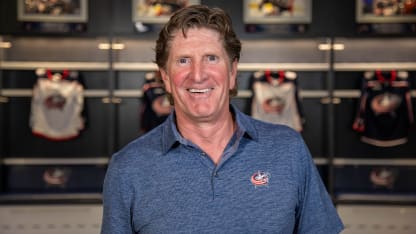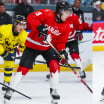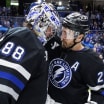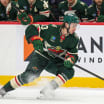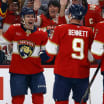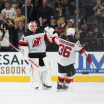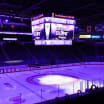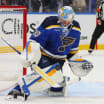Mike Babcock, one of the most accomplished coaches in hockey history, is taking over the Columbus Blue Jackets this season in his first NHL job since the Toronto Maple Leafs fired him Nov. 20, 2019.
NHL.com visited him at his home in suburban Detroit to talk about why he decided to coach in Columbus, how he plans to communicate better with players this time, and what he thinks of the Blue Jackets.
This is the third story in a three-part series. (Part 1 | Part 2)
BRIGHTON, Mich. -- When Mike Babcock looks at the Columbus Blue Jackets, the coach doesn't see the team that finished 31st in the NHL last season and missed the Stanley Cup Playoffs for the third year in a row.
He sees young players like defenseman Adam Boqvist and forwards Kent Johnson and Kirill Marchenko. He sees difference-makers like defenseman Zach Werenski and forwards Johnny Gaudreau and Patrik Laine. He sees a leader in forward Boone Jenner, the captain.
And he sees a team that improved in the offseason by selecting forward Adam Fantilli with the No. 3 pick in the 2023 NHL Draft and trading for veteran defensemen Ivan Provorov and Damon Severson.
"They have, in my opinion, lots of kids," Babcock says, "and they have lots of things that I think you can fix quickly."
How does Babcock plan to fix the Blue Jackets?
He decided against studying last season after he took the job July 1. Injuries were a big reason the Blue Jackets didn't play up to their potential. Better to have fresh eyes and give the players a fresh start in training camp.
"It was going to be no good to anybody," he says. "Why would I catch them doing it wrong? Let's catch them doing it right. We're going to camp, we're going to get to know each other, and we're going to work."
The Blue Jackets have been doing R&D to prepare for camp, except Babcock doesn't call it "research and development." He calls it "rob and do."
"Take the best from the best teams," he says. "What are they doing? What leads to winning? Take it. Make it your own."
Babcock is realistic. He knows the Blue Jackets can't, say, mimic the Edmonton Oilers power play that set an NHL record by clicking at 32.4 percent last season. They don't have forwards Connor McDavid and Leon Draisaitl.
That said, they have studied the top four teams in each category tracked by the analytics firm Sportlogiq, and they've studied the final four teams in the playoffs.
"I've gone to our analytics people, and I've said, 'What's the No. 1 indicator of being in the playoffs?'" Babcock says. "They tell me. I look at it. That's our No. 1 priority for our team."
Of course, that's classified.
"You can guess anything you want," Babcock says with a smile, "but I ain't telling ya."
But Babcock will tell you this:
"Our ability to play with structure is going to be real important for us, so the way we backcheck, the way we stop on defense, the way we compete there," he says. "But we've got to be way heavier in the offensive zone. We've got to spend way more time in the offensive zone. And so, I have a plan in every area, obviously. I've spent a lot of time."
The players sound primed to buy in.
